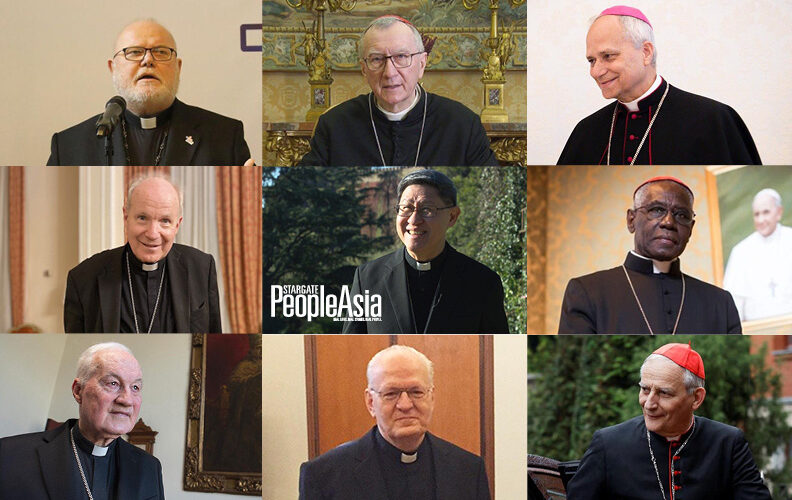This list of papabiles, or cardinals worthy of succeeding the late Pope Francis, is by no means a definitive one. Rather, it’s a list of lists culled from various news and media organizations. Will the successor to the throne of St. Peter be one of them? It’s worth keeping in mind the old Italian adage: Whoever enters the conclave as pope exits it as cardinal.
By Anne Stephanie Nilo and Franchesca L. Tuazon
As the Church continues to mourn the death of Pope Francis, the interregnum period as the Church calls it, 133 cardinals are about to enter the Sistine Chapel tomorrow, May 7, to elect the 267th successor to the throne of St. Peter in a closed-door papal conclave.
Although said to be guided by the Holy Spirit, the tradition’s significance goes beyond the spiritual realm. The next pope will not only head the Roman Catholic Church and its 1.4 billion faithful the world over, but also manage the Roman Curia, effectively becoming the CEO of a large bureaucracy with more than 50 offices.
According to the Loyola Press, the elected pope will also carry the weight of several other major titles: the Bishop of Rome, Vicar of Jesus Christ, Successor to the Prince of the Apostles, Supreme Pontiff of the Universal Church, Primate of Italy, Archbishop and Metropolitan of the Roman Province, Sovereign of the State of the Vatican City and Servant of the Servants of God.
This lengthy list requires a cardinal who is ready to carry out the three pillars of the Petrine mission: handle not only matters of the faith, but more importantly, the foreign affairs of the Vatican as a sovereign state, and the temporal concerns of the Roman Catholic flock.
In other words, whoever succeeds Pope Francis will not only be a spiritual leader, but a temporal one as well who’s supposed to be equipped with the vision and energy to direct and redirect Church affairs and interests into the remainder of the 21st century and beyond, as his actions and inactions are bound to leave lasting impacts long after his death.
There’s no predicting the outcome of this secretive voting exercise requiring a two-thirds majority vote. The Associated Press reports that Argentine Jesuit Jorge Mario Bergoglio, aka Pope Francis, in 2013 was considered too old to be elected pope at 76, and that Polish Karol Wojtyla was not even part of any short list during the 1978 conclave that elected him before he chose the papal name John Paul II.
As each cardinal casts his vote, and while the world awaits the white smoke from the chimney of the Sistine Chapel signaling the election of a new pope, PeopleAsia has compiled a list of strong contenders for the papacy. The list is by no means a definitive one, but rather a reflection of a list of lists culled from various news and media outlets. So, it’s worth keeping in mind the old Italian adage that’s perhaps nearly as old as the Church itself: Whoever enters the conclave as pope exits it as a cardinal.
Cardinal Luis Antonio Gokim Tagle, Philippines
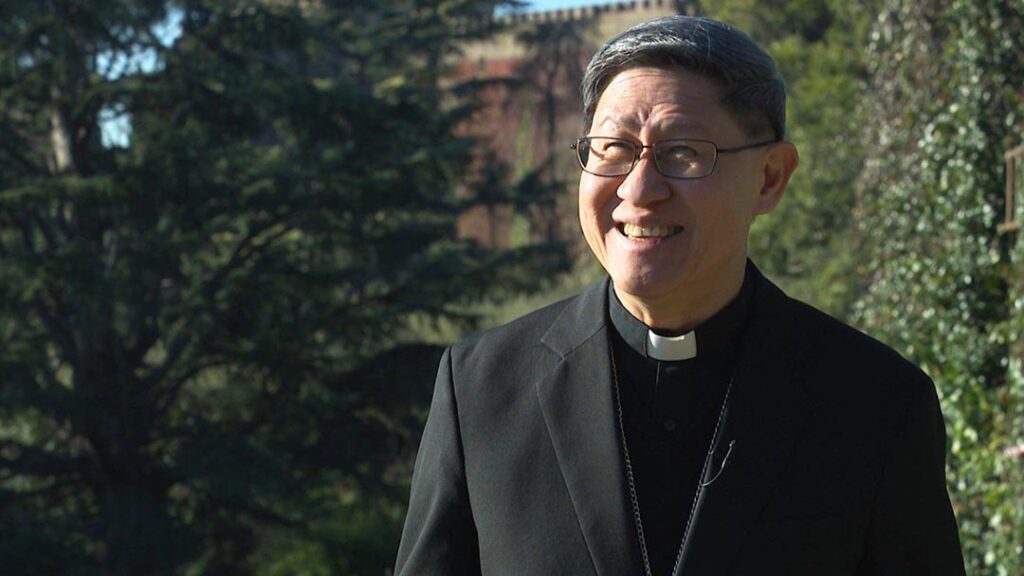
At the first Ignatian Festival in Manila in 2012, he described himself as a “Son of St. Ignatius.” Educated by the Jesuits at the San Jose Seminary and Loyola School of Theology at the Ateneo de Manila University, Cardinal Tagle’s strong Jesuit roots — should he become the next pope — could ensure the continuity of Pope Francis’ legacy.
In December 2019, Pope Francis appointed him Prefect of the Congregation for the Evangelization of Peoples. The following year, CBCP News reports that the Pope elevated Tagle to the order of cardinal bishop, the highest rank within the College of Cardinals. Tagle, who has been dubbed by the media as the “Asian Francis” for his compassionate and often liberal views, also gained global exposure and recognition when the Pope earlier appointed him president of Caritas Internationalis, the main charitable arm of the Roman Catholic Church, a position he held from 2015 to 2023.
Cardinal Christoph Schönborn OP, Austria
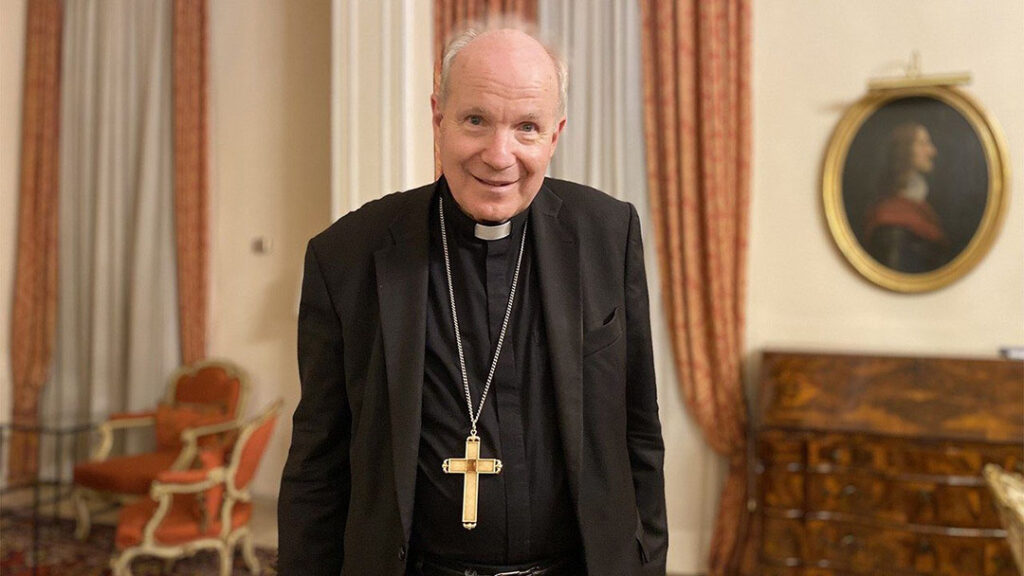
Based on a report by the National Catholic Register, Cardinal Schönborn’s work as editor of the Catechism of the Catholic Church is considered to be his most important contribution to Roman Catholic theology. As then Cardinal Joseph Ratzinger’s former student, he was in charge of the daily work that covered over six years of consultation, including drafting and editing the catechism.
This Dominican theologian and Archbishop Emeritus of Vienna and Ordinary for the faithful of the Byzantine rite in Austria is a member of the Dicasteries for the Doctrine of the Faith, for the Oriental Churches, and for Evangelization. He is also part of the Cardinal Commission for the Supervision of the Institute for the Works of Religion, according to the Vatican Press Office.
Cardinal Péter Erdő, Hungary
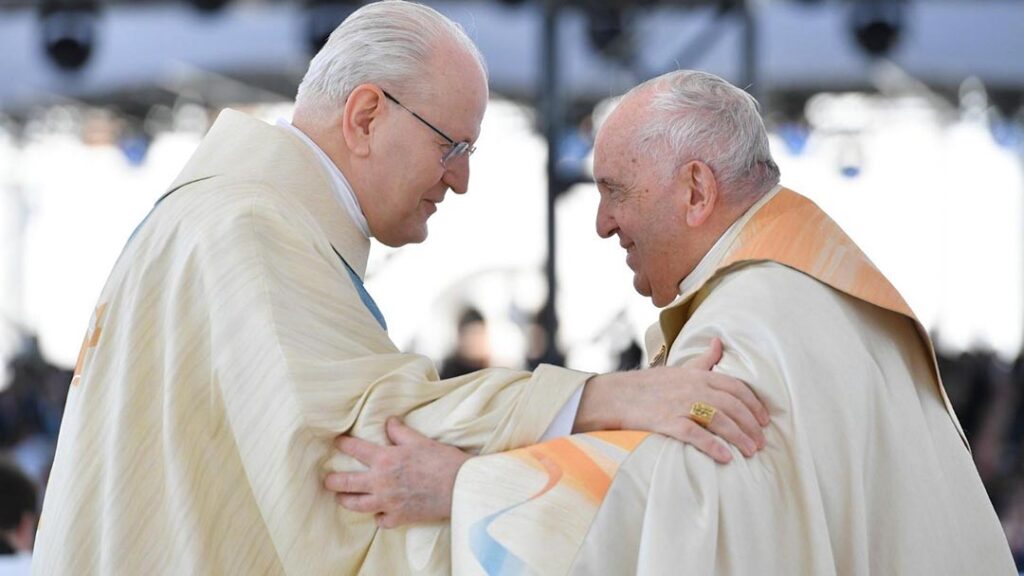
The 72-year-old Archbishop of Esztergom-Budapest has been perceived by observers as a conservative. The Catholic Herald reports that from 2014 to 2015, while serving as relator of Pope Francis’ Synods of Bishops on the Family, he maintained a conservative stance despite the late Pope’s liberal views on allowing divorced and civilly remarried Catholics to receive the sacrament of communion. And on the topic of migrants, he “warned that indiscriminate hospitality could risk making the Church complicit in human trafficking.”
Cardinal Erdo is a member of the Council for the Economy, the Dicasteries for the Oriental Churches, for Divine Worship and the Discipline of Sacraments, and for Legislative Texts, and the Supreme Tribunal of the Apostolic Signatura.
Cardinal Pietro Parolin, Italy
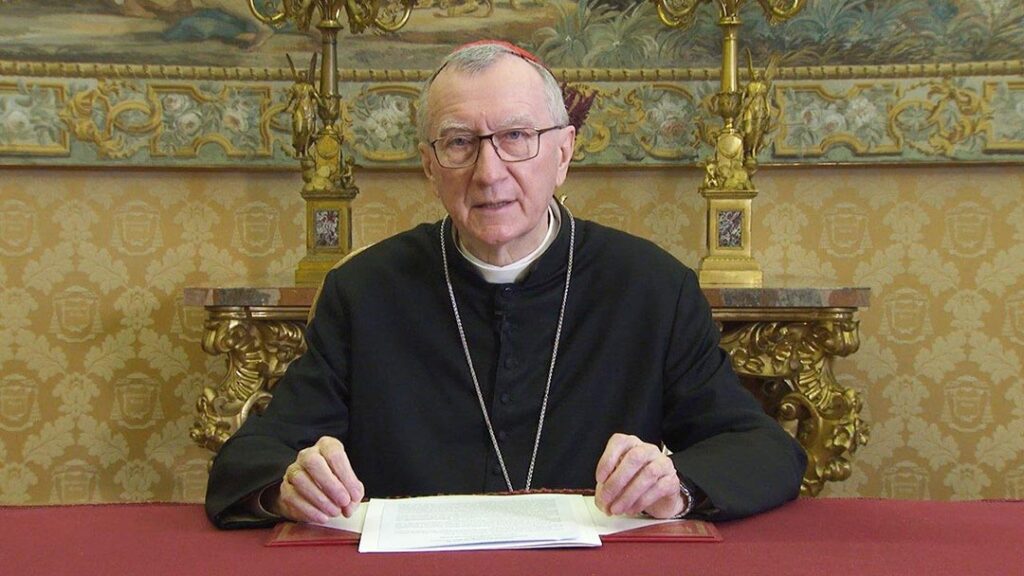
Currently the Secretary of State of the Vatican, Cardinal Parolin, according to the Vatican Press Office, can be credited for building solid diplomatic relations between Vietnam and the Holy See. But perhaps his most important work as a diplomat is fostering a dialogue between Israelis and Palestinians — a landmark initiative that could allow for lasting peace in the Middle East.
In March 2023, Pope Francis appointed Parolin as member of the Dicasteries for the Doctrine of the Faith, for the Oriental Churches, for the Evangelization, for Bishops, for Divine Worship and the Discipline of the Sacraments. The cardinal also became a member of the Council of Cardinals during the papacy of the late Pope Francis.
Cardinal Matteo Maria Zuppi, Italy
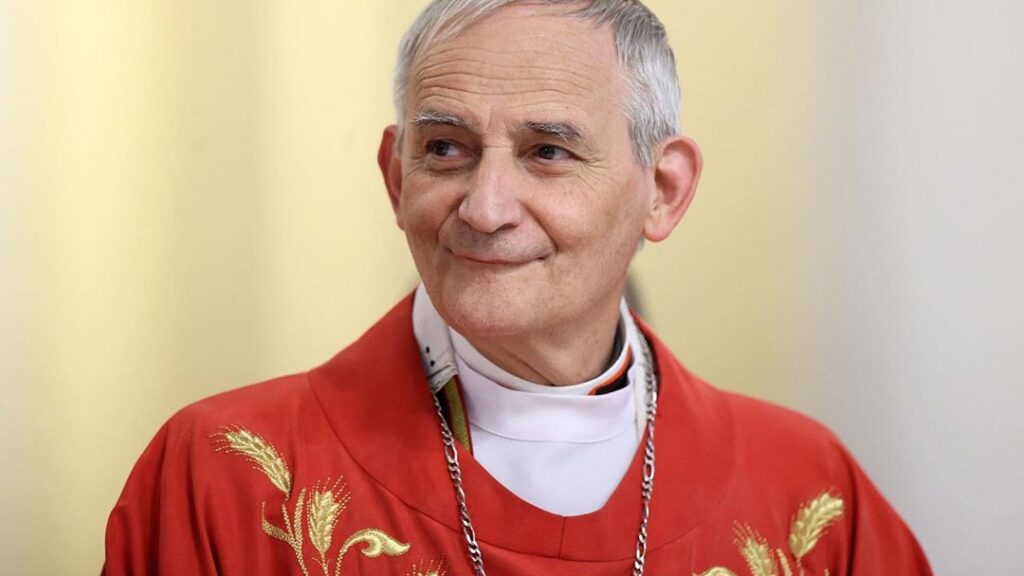
Cardinal Zuppi, also called “Don Matteo,” currently serves as the Archbishop of Bologna and has been the president of the Italian Bishops’ Conference since 2022. He is known for his pastoral approach and commitment to social justice, and his early ministry as a street priest was deeply influenced by his involvement with the Sant’Egidio Community, a global Christian movement dedicated to social service and peace-building.
Appointed as Cardinal-Priest by the Pope Francis in 2019, Cardinal Zuppi also embodies Pope Francis’ vision of a church that embraces the marginalized. He has been known for his progressive stance on topics such as the inclusion of the LGBTQ+ community in the Roman Catholic Church. In 2023, Pope Francis appointed Zuppi as the Vatican’s peace envoy to address the humanitarian crisis resulting from the Russia-Ukraine conflict.
Cardinal Reinhard Marx, Germany
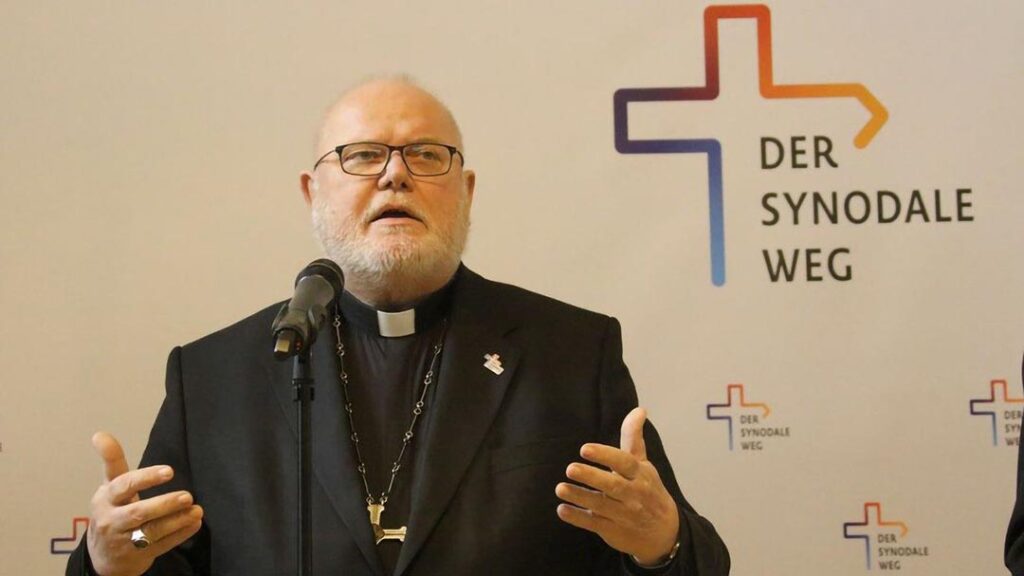
Known for his progressive views and influential roles in the Vatican, Archbishop of Munich and Freising, Cardinal Marxwas a close adviser to Pope Francis, and currently serves as a member of the Dicastery for the Oriental Churches and the Council for the Economy.
As the German Bishops’ Conference president from 2012 to 2020, he advised and promoted the “Synodal Path,” a reform initiative that sought to address sexual abuses in the Church. While praised by some for its openness, the iniative’s very same quality earned for him criticism from conservatives. In 2021, amid revelations of the Church’s mishandling of sexual abuse cases, Marx offered his resignation, which the late Pope Francis rejected.
Cardinal Robert Francis Prevost, United States of America
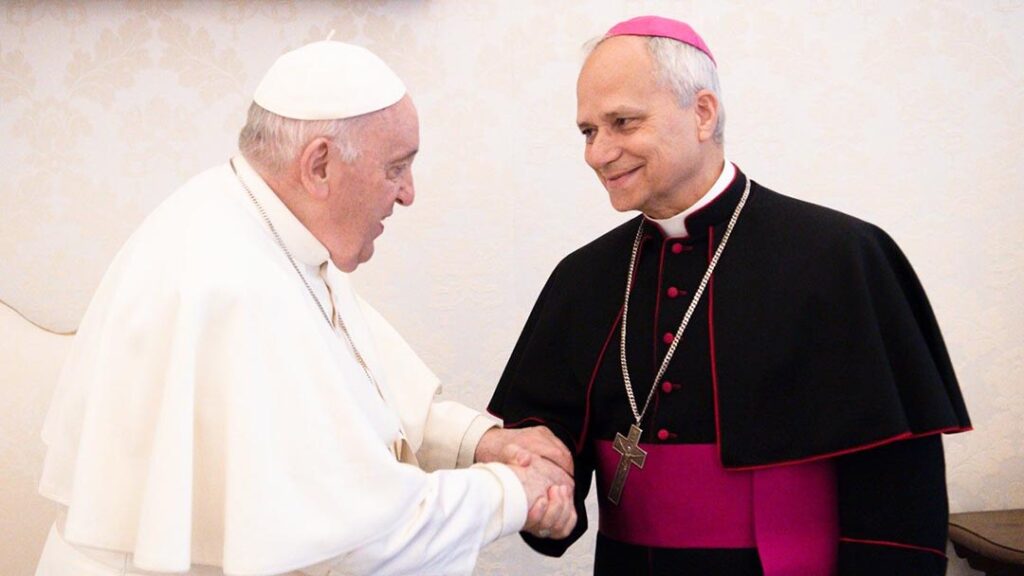
Prefect of the Dicastery for Bishops and Archbishop-Bishop emeritus of Chiclayo, Peru, Cardinal Robert Francis Prevost is known for his pastoral experience and commitment to synodality. His missionary work began in Peru in 1985 when he joined the Augustinian mission. He also served as the Prior General of the Augustinian Order in 2001, a teacher in the diocesan seminary and an ecclesiastical judge in Trujillo City.
He is currently a member of the Dicasteries for Evangelization, Section for First Cvangelization and the New Particular Churches, the Doctrine of the Faith, the Eastern Churches, the Clergy, the Institutes of Consecrated Life and the Societies of Apostolic Life, Culture and Education, and Legislative Texts. He is also a member of the Pontifical Commission for Vatican City State.
Cardinal Robert Sarah, West Guinea
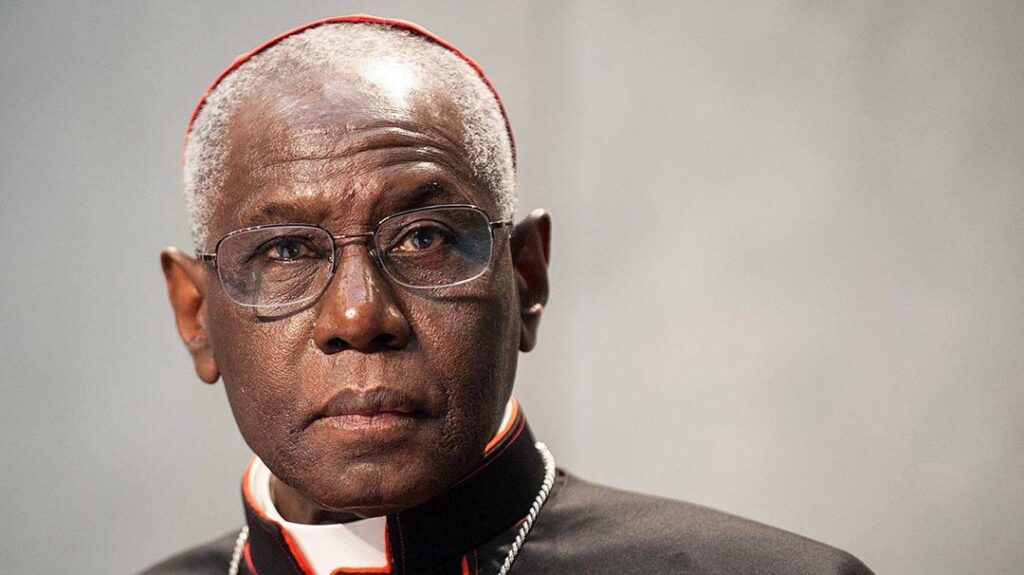
Cardinal Sarah has a deep commitment to preserving traditional liturgical practices. He became the youngest bishop in the world at the age of 34 when he was appointed Archbishop of Conakry in 1979 by Pope John Paul II. During his tenure, he led the Church through the dark days of West Guinea’s Marxist dictatorship.
In 2001, Sarah was the Congregation for the Evangelization of Peoples secretary and in 2010 became the Pontifical Council “Cor Unum” president. He was appointed later as Prefect of the Congregation for Divine Worship and the Discipline of the Sacraments by Pope Francis in 2014, a position he held until his resignation in 2021. Considered by many as a conservative despite his brave stance in guiding his flock through a dictatorship, Sarah has been a vocal advocate for the defense of traditional Catholic teaching on questions of sexual morality and the right to life, and in denouncing Islamic fundamentalism.
(Photos from https://www.vaticannews.va/en.html)

